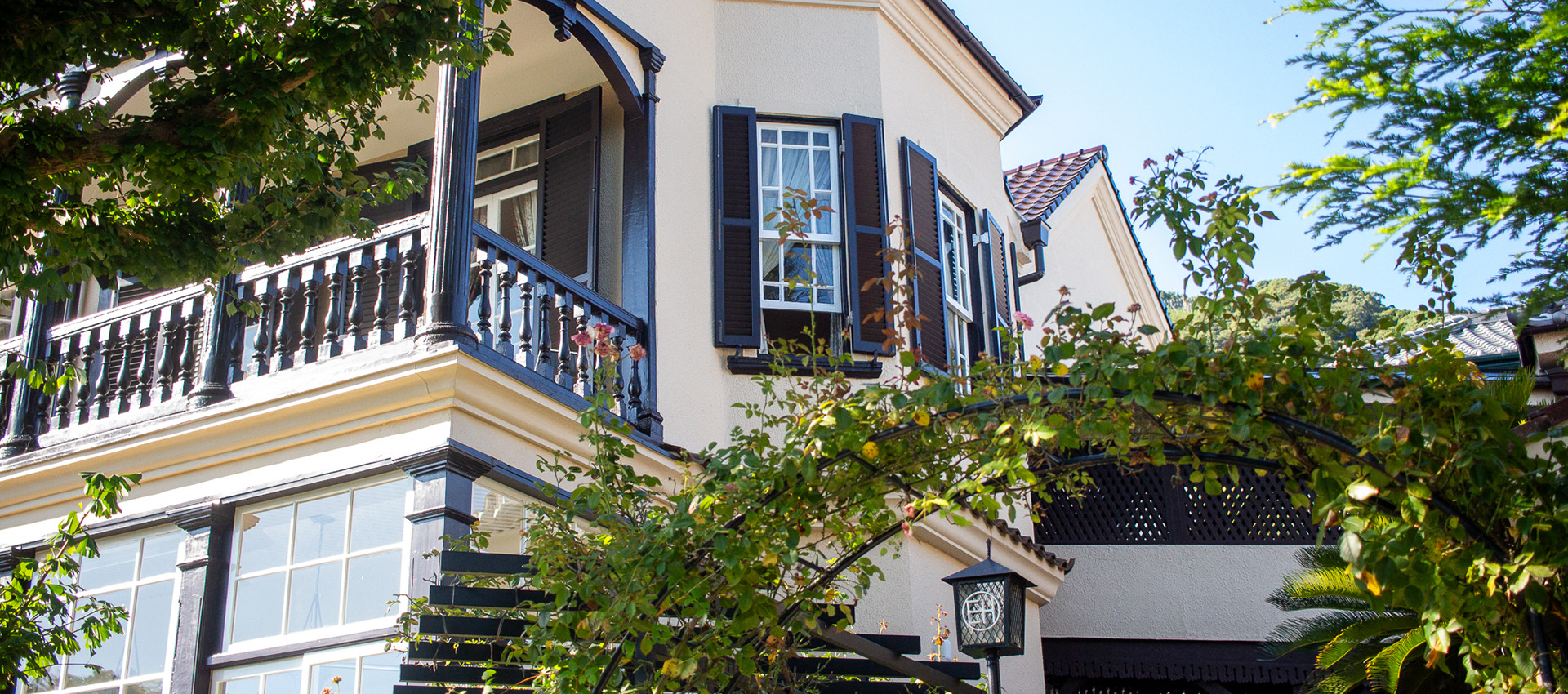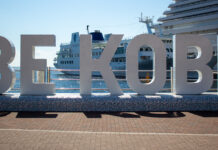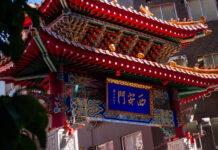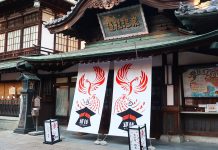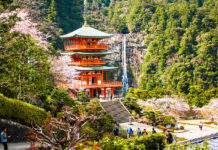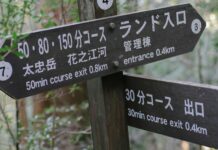The Port of Kobe was opened on 1 January 1868, ten years after Japan’s borders opened to the rest of the world. It didn’t take long for foreigners to begin settling here between the mountains and the sea, buying and renting homes while setting up industry. As this was during the Meiji period, Western influences were welcomed and Kobe started transforming into a multicultural city. One of the areas foreigners lived in was named Kitano Ijinkangai.
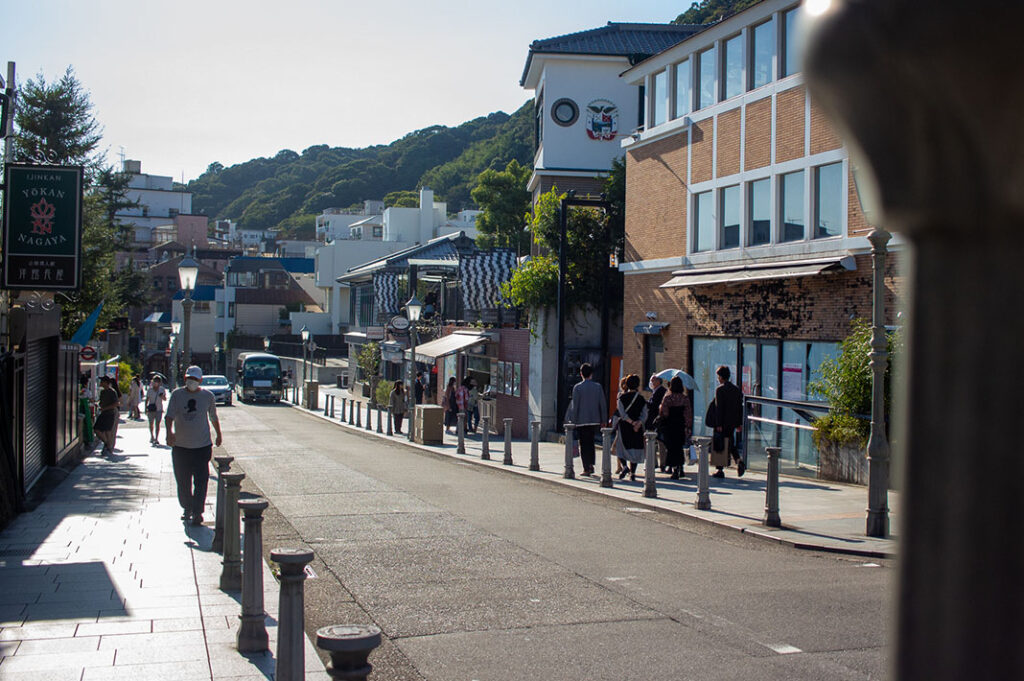
Much of this area was built under the guidance of the British A.N Hansell and German D.G Lalande, and is known as one of the best foreign settlements in Asia. In fact, in 1980 this area was even designated an “Important Preservation Districts for Groups of Traditional Buildings” act by the Government. Kitano Ijinkan originally had over 300 houses and mansions. However, many have been lost to time and war so now only 30 remain, twenty of which are open to visitors.
Visiting Kitano cho
To access the houses you will need to purchase tickets — we will explain this toward the end of the article. Though many of the houses are located on and around the main street, others are located further uphill. Head up the stairways and wind through the alleys where you’ll be rewarded with charm and views for days. In Kitanocho, you’ll also find souvenir stores and cafes for when you need a little break. The Vienna, Austria House has a nice outdoor terrace area and grab a refreshment. Without further ado, here are a few of the houses to give you a taste of what to expect from this historic area.
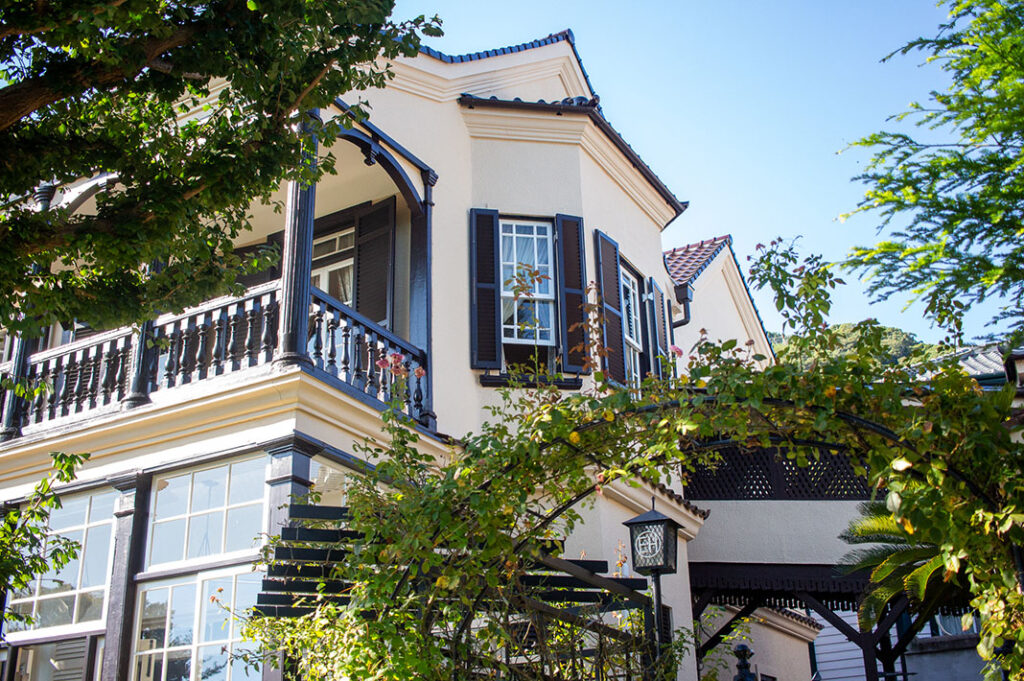
English House
Get up close and personal with Sherlock Holmes and Dr. Watson at “The English House.” Built in 1909, this elegant house features decor ranging from 17th-century Baroque to 19th-century Victorian and even an English garden.
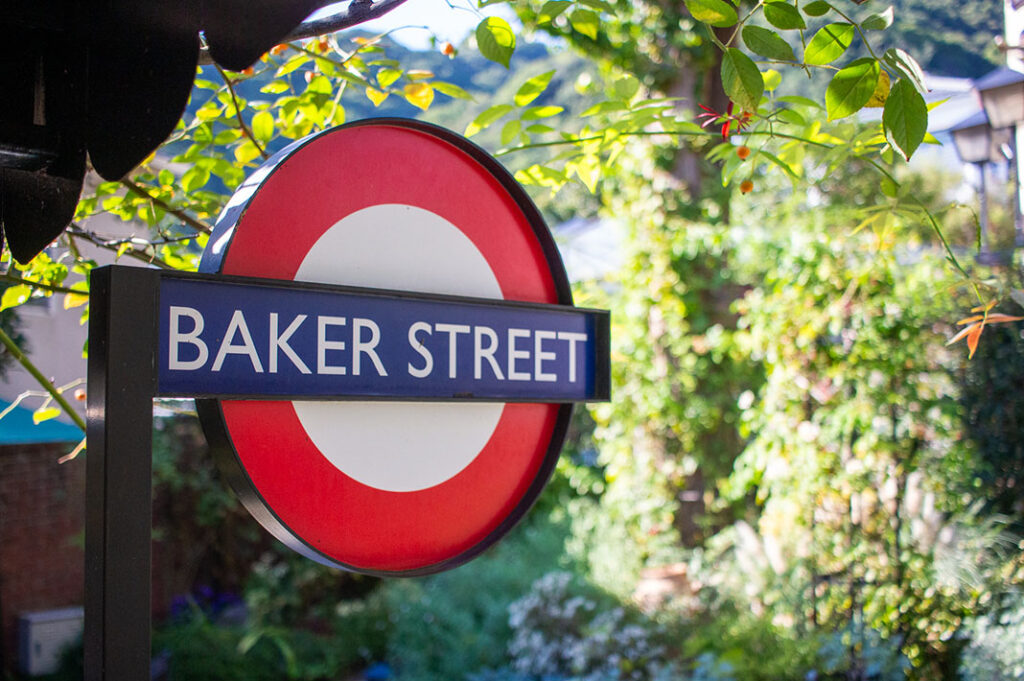
Upstairs you’ll find a recreation of Sherlock Holmes’ room at 221B Baker Street, and in the driveway, you can pose next to a vintage car. To complete the fantasy, visitors are able to choose an Inverness Cape and Deerstalker cap to wear while exploring the property.
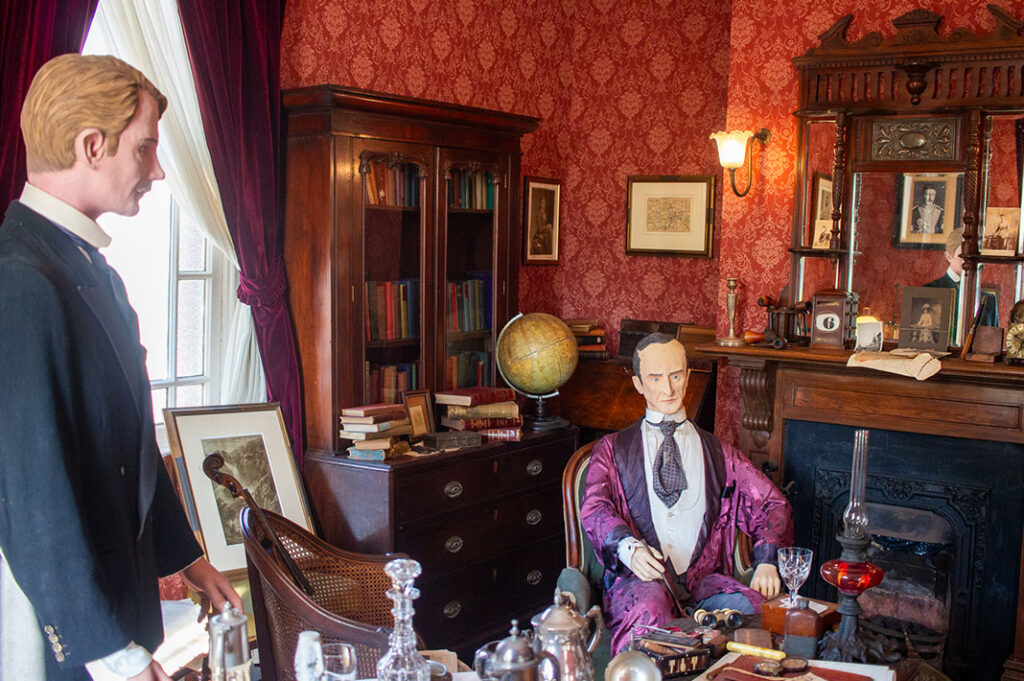
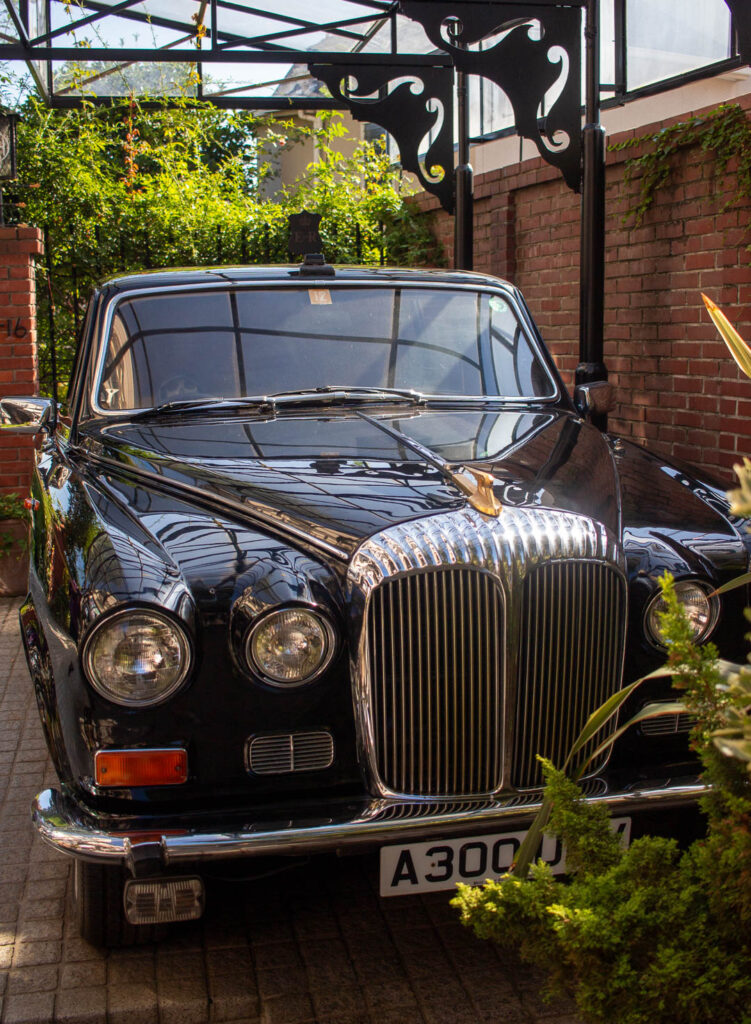
Ben’s House
This one is definitely for the lovers of quirk. The brightly-coloured rooms are decorated with an array of curious specimens and taxidermy. Some of the animals on display cannot be imported or exported at present, making them rare sights. The house itself is significant as the German red bricks used in its construction have been designated a cultural asset of Kobe.
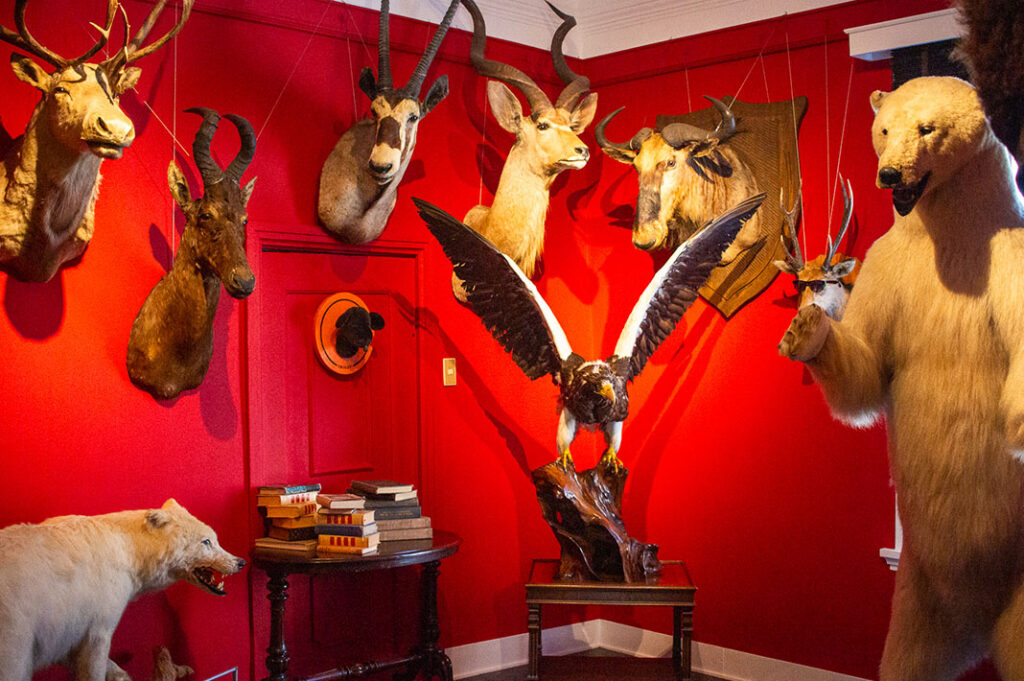
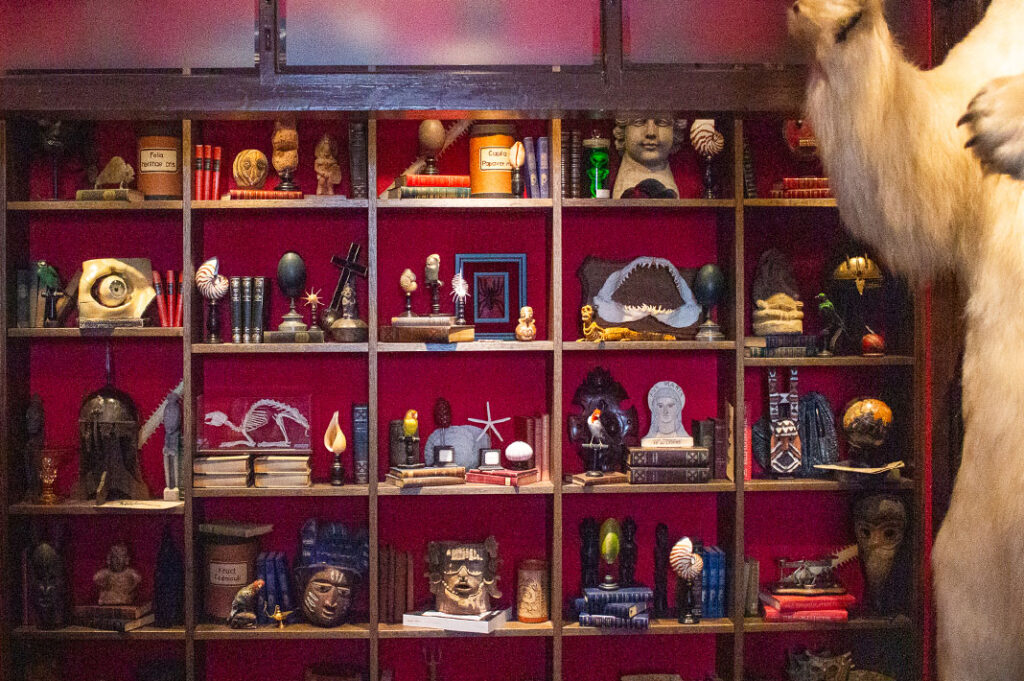
Uroko no Ie
Perched on a hilltop with sweeping views of the city, this is one of the most famous Meiji-era Western houses in Japan and it was also the first to be opened to the public in Kobe. Nicknamed “The Scale House” for its unique rounded slate tiles, it’s easy to see why it is so well-known.
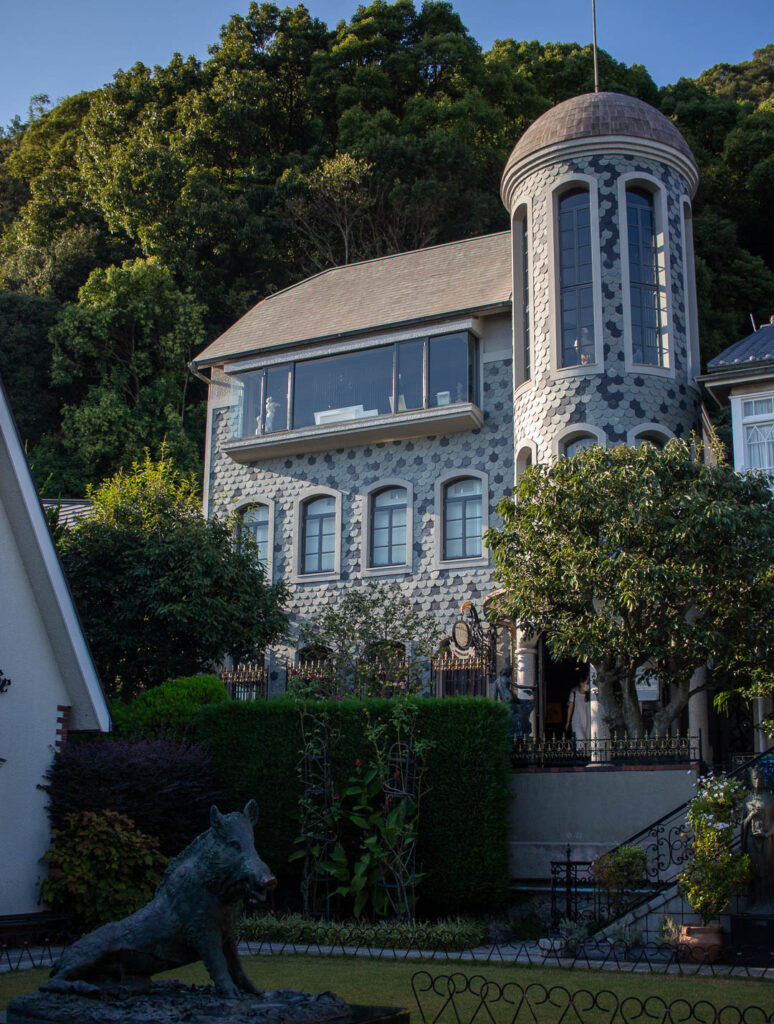
Originally a luxury rental house for foreigners, its rooms now house a gallery featuring Western antiques, stained glass windows, Tiffany lamps, and a number of masterpieces by painters including Matisse. When you’re on the top floor, don’t forget to look out for some great views of Kobe.
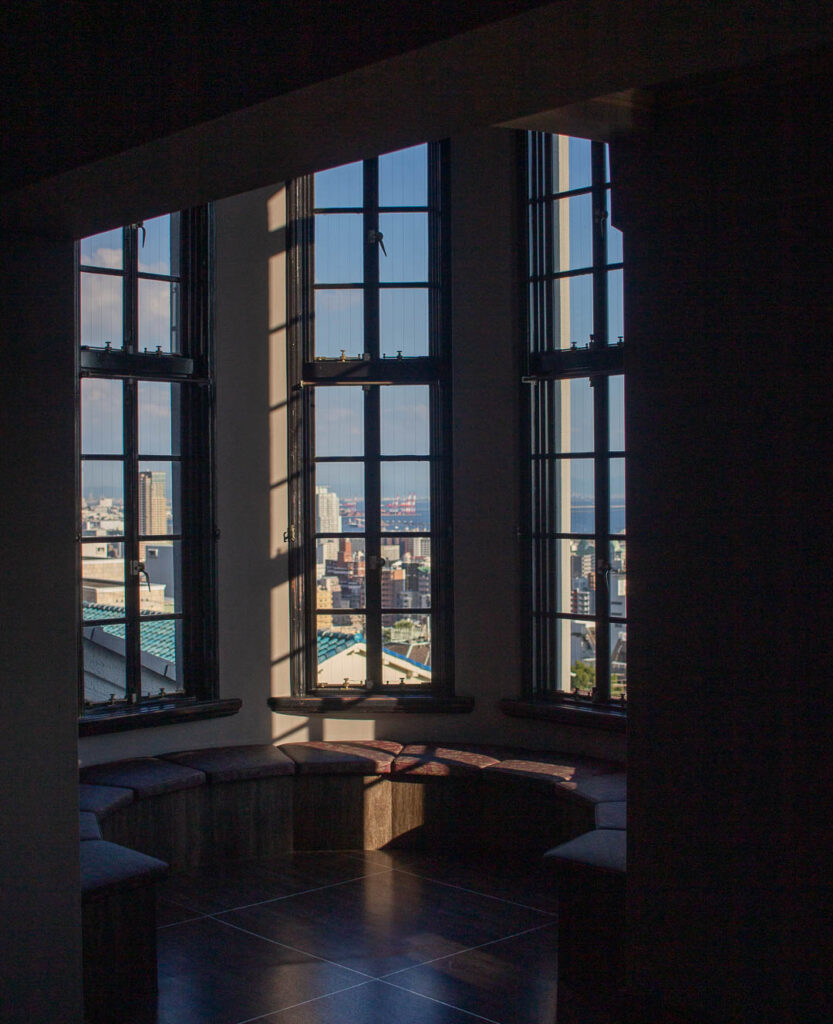
Yokan Nagaya (French House)
Constructed in 1908, this clapboard building originally featured two symmetrical apartments designed for foreigners. Inside is a mixture of French opulence and the downright strange.
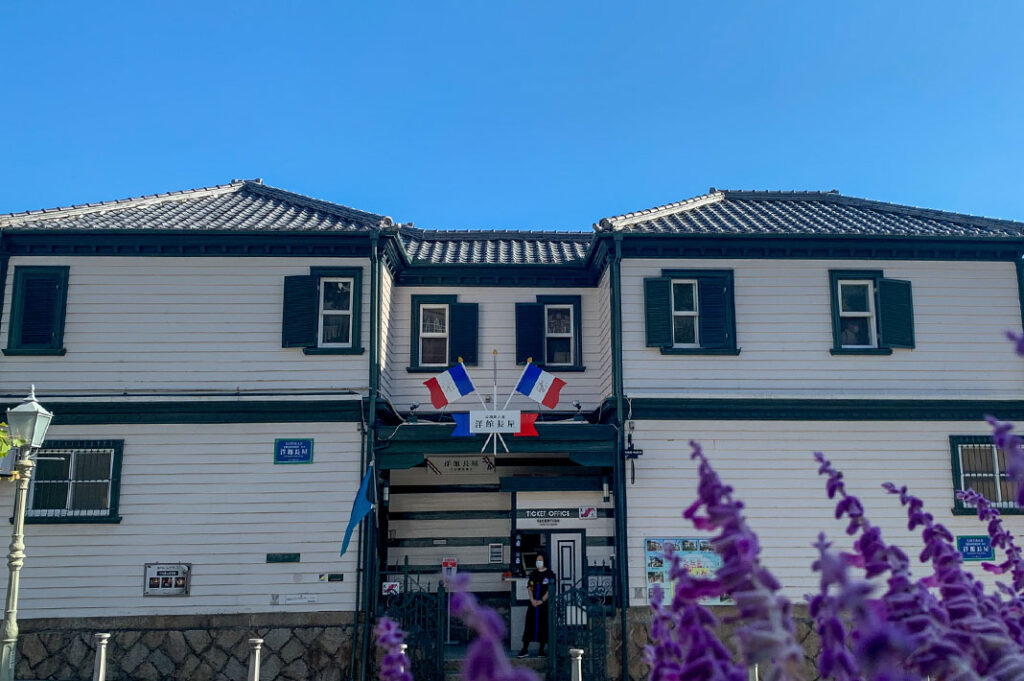
For lovers of antiques, you’ll adore the Art Nouveau and Napoleonic pieces including a gorgeous red petal sofa. Head to another part of the building and you’ll find yourself surrounded by some seriously bizarre decor…but we’ll leave that for you to experience yourself.
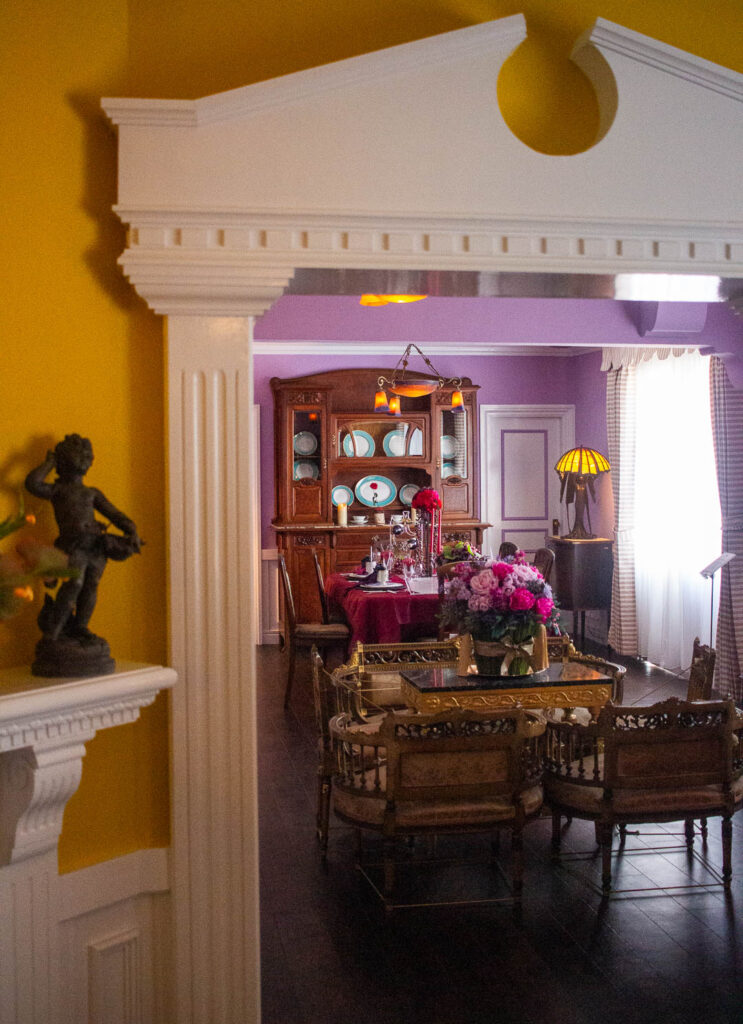
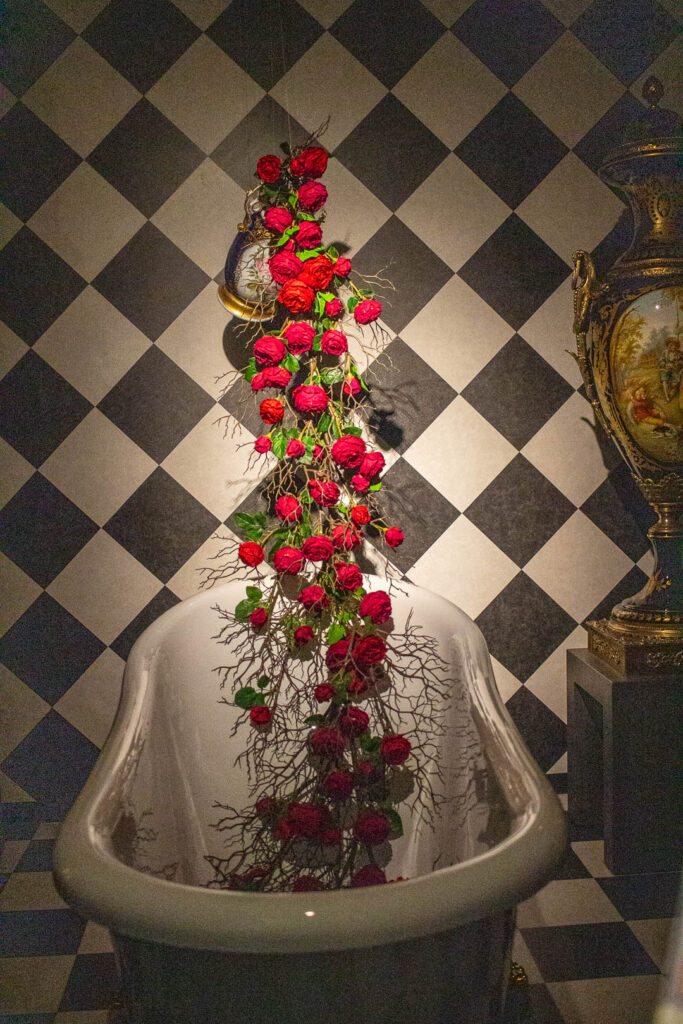
Other buildings include the Tudor-style “Yamate Ban Kan,” a trick art museum, the former Chinese Consulate and the Kitano Foreigner’s Club–an elegant salon. If you reserve ahead, you can even dress in 19th century attire for a photoshoot at the Foreigner’s Club.
Kitano Ijinkan Ticketing
You can visit the houses singularly, paying at the door, or you can arrange a “passport” from the Ijinkan Uroko Group Visitor Center. The cheapest Passport is a 3-house passport (¥1,540 for adults) and the most expensive covers 7 houses and the Uroko Observation Gallery at ¥3,300 per adult. Pick up your map and passport and get walking! The official website also lists some recommended itineraries for all passport styles.
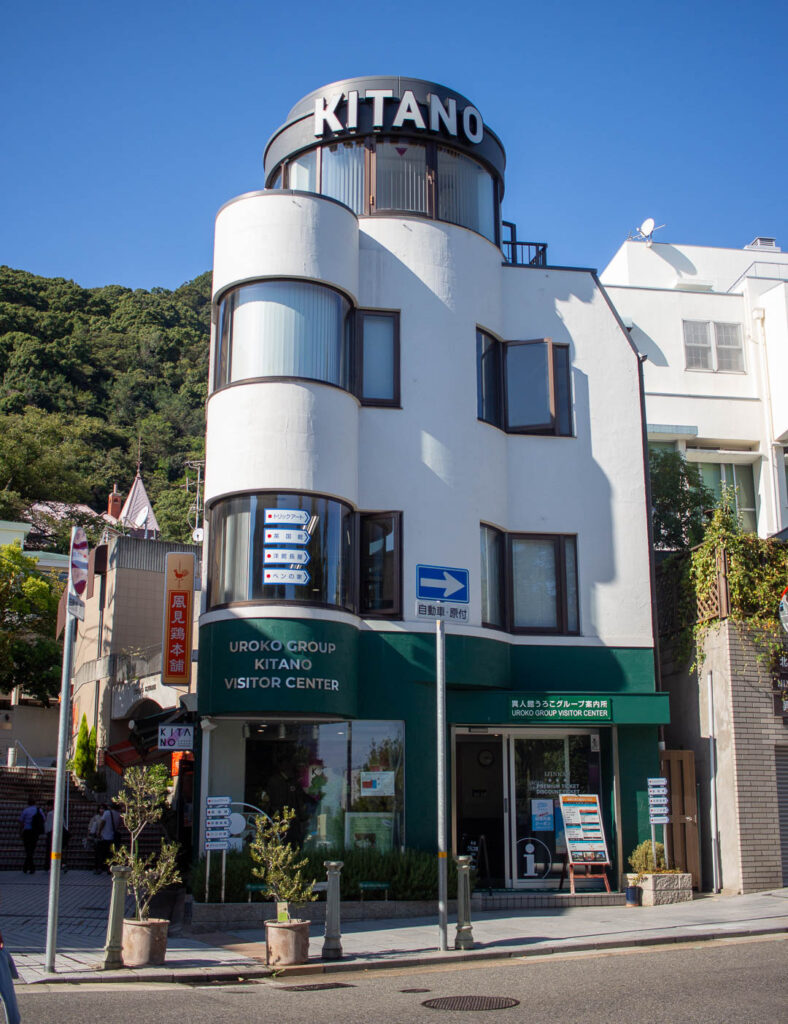
How to get to Kitano Cho
Kitano cho is located a 15-minute walk from either Sannomiya Station or Shin-Kobe Station. Another great attraction nearby is the Nunobiki Herb Garden, read more about it here.
Name: Kobe Kitano Ijinkan
Address: 3 Chome-5-4 Kitanocho, Chuo Ward, Kobe, Hyogo 650-0002, Japan (link)
Open: 9:30am – 5:00pm (October – March); 9:30am – 6:00pm (April – September)
Admission: From ¥1540 per adult for a 3-house pass.
Website: https://kobe-ijinkan.net/md/en/
Post by Japan Journeys.



